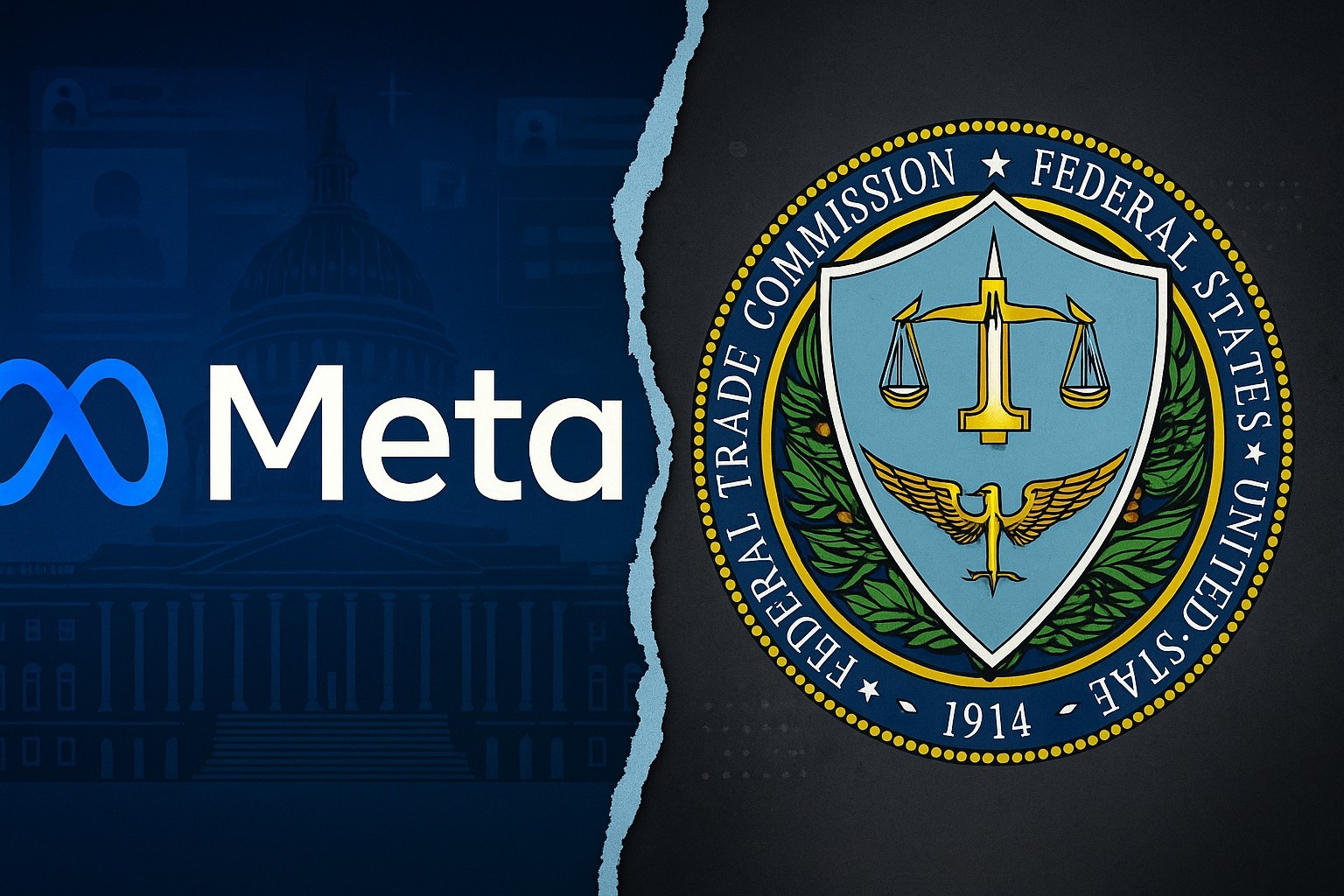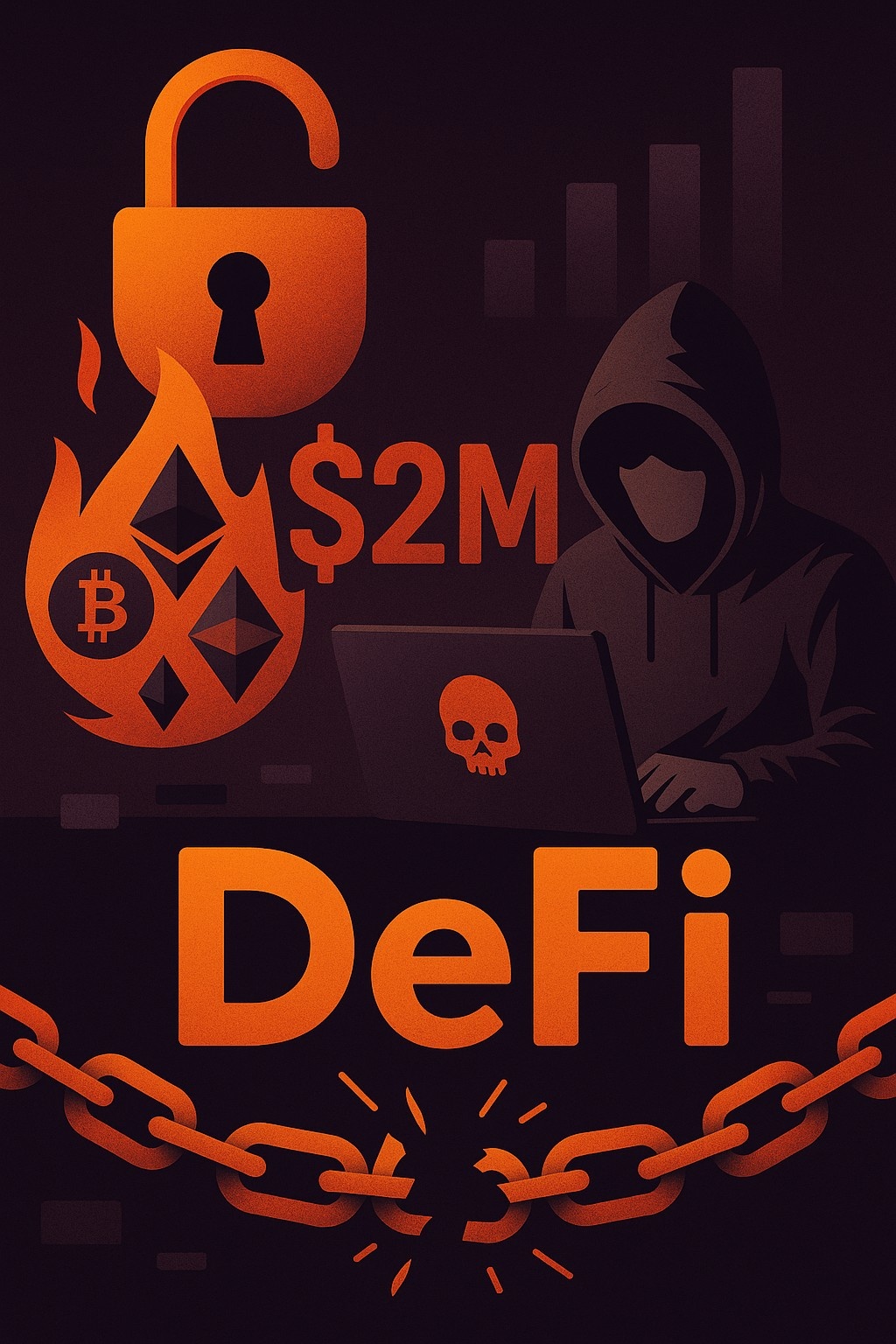Meta’s Antitrust Showdown: Inside Facebook’s Fight to Keep Its Social Empire Together
In a courtroom just blocks from the U.S. Capitol, Meta – the parent company of Facebook, Instagram, and WhatsApp – is waging one of the most consequential legal battles in modern tech history. At the center of it: the U.S. Federal Trade Commission’s (FTC) bold attempt to unwind Meta’s decade-old acquisitions of Instagram and WhatsApp, alleging the company has built a monopoly by crushing competition rather than earning user loyalty.
This week, Meta went on the offensive, filing a motion that could bring the trial to an abrupt halt. The company asked the presiding judge to rule in its favor immediately, arguing the FTC has failed to present convincing evidence that Meta holds an illegal monopoly in the social networking space.
In legal terms, it’s called a “motion for judgment as a matter of law.” In everyday language: “Judge, there’s no case here – let’s not waste more time.”
It’s an audacious move — and one that signals just how confident Meta is in its defense.
The FTC’s Case: “Better to Buy Than Compete”
The trial, which began in April 2024, stems from the FTC’s argument that Meta (then Facebook) strategically bought out two of its fiercest up-and-coming rivals: Instagram in 2012 and WhatsApp in 2014. These weren’t just investments, the agency claims — they were defensive maneuvers to preserve Facebook’s grip on the personal social networking market.
To bolster its claim, the FTC has presented internal communications from Meta leadership, including now-famous emails from CEO Mark Zuckerberg suggesting it’s “better to buy than compete.” The agency argues that these acquisitions eliminated competition and prevented users from enjoying more innovation, privacy options, and diverse platforms.
The FTC wants the court to force Meta to divest both Instagram and WhatsApp, breaking up one of the largest social media conglomerates in the world.
This is no ordinary legal fight. If successful, the case could radically reshape how tech companies approach mergers — and even how users experience their favorite platforms.
Meta’s Defense: The Market Isn’t What It Used to Be
Meta’s legal counterattack rests on two main arguments:
-
The market has changed — and TikTok proves it.
Meta contends that the FTC’s definition of “personal social networking” is outdated and too narrow. It argues that Facebook and Instagram don’t exist in a vacuum. Today’s d igital landscape is dominated by fierce competitors like TikTok, YouTube, and Snapchat, all vying for users’ time and attention.
Meta’s legal team hammered this point home in court, arguing that TikTok alone has forced Facebook and Instagram to evolve — adding features like Reels and Stories to keep up. The notion that Meta operates without serious competition, they say, simply doesn’t match the current market reality.“This is not a monopoly,” Meta argues. “It’s a marketplace where we’re fighting to survive.”
-
There’s no harm to consumers.
Antitrust law typically hinges on consumer harm — such as higher prices, fewer choices, or degraded service. Meta points out that its platforms are free, more widely used than ever, and, in many cases, improved through competition and internal investment.
The company also highlights that regulators approved both Instagram and WhatsApp deals at the time — arguing that the FTC is now attempting a legal “do-over” based on decade-old transactions.
Meta’s Power Play: Asking for a Dismissal Mid-Trial
In a surprising move, Meta filed for judgment before the trial concluded — essentially asking the judge to dismiss the FTC’s case immediately.
The request argues that the FTC has not proven a separate market for “friends-and-family sharing” and has failed to show why platforms like Snapchat, TikTok, and others don’t count as direct competitors.
Judge James Boasberg, who is presiding over the bench trial (meaning no jury is involved), has not ruled on the motion yet. While such mid-trial dismissals are rare, Meta’s move sends a clear signal: it believes the government has no case.
Even if the judge lets the trial continue, the motion puts Meta’s legal stance firmly on record and suggests it’s feeling confident about the outcome.
What’s at Stake: A Potential Breakup of Meta
If the FTC prevails, it could lead to the forced spinoff of Instagram and WhatsApp — a move that would shatter Meta’s interconnected social empire. Such a decision would mark one of the biggest antitrust victories in decades, with ripple effects across the tech industry.
It would also validate FTC Chair Lina Khan’s aggressive strategy to rethink antitrust enforcement for the digital age. Khan has made challenging Big Tech’s dominance a central focus of her tenure, and a win here would cement that legacy.
On the other hand, if Meta wins, the verdict could undermine future regulatory attempts to rein in tech giants. It would also send a message that U.S. antitrust laws are poorly equipped to address digital monopolies that don’t charge users directly — a major challenge for regulators worldwide.
A Glimpse Inside the Courtroom
During the trial, the FTC highlighted how Meta allegedly viewed Instagram and WhatsApp as existential threats. They argued that, left alone, both companies could have grown into full-fledged competitors — giving users more choices.
Meta’s lawyers countered by showing how those apps thrived after acquisition — citing Instagram’s growth from 30 million users to over 1 billion. They also emphasized Meta’s investments in encryption, security, and infrastructure, especially in WhatsApp, which remains free of ads to this day.
Evidence presented during the trial also revealed Meta’s internal anxiety over TikTok’s rise, supporting their claim that the competitive landscape is dynamic and evolving, not locked down.
Why This Matters to You
For the average user, the courtroom drama might seem remote. Facebook, Instagram, and WhatsApp work today as they did yesterday — regardless of what lawyers say.
But the outcome of this case could affect:
- How tightly these platforms are integrated
- What kind of data is shared across apps
- Whether new features appear faster or slower
- If future acquisitions are allowed or blocked entirely
If Instagram and WhatsApp become standalone companies again, they may look or behave very differently.
The Broader Antitrust Wave
Meta’s case is just one front in a wider war. The Justice Department is pursuing separate antitrust suits against Google — targeting both its search business and its advertising dominance. Regulators are also scrutinizing Amazon, Apple, and even Microsoft (over its Activision deal, which the FTC tried and failed to block).
So far, outcomes have been mixed. But this case against Meta is perhaps the boldest swing yet — a test of whether regulators can retroactively unwind mergers they now regret.
The Bottom Line
As the trial nears its end, Judge Boasberg will soon decide whether the FTC’s case holds water — or if Meta gets to walk away, social empire intact. Whatever the outcome, it will help define how governments approach digital monopolies for years to come.
In a tech world where platforms constantly compete for our time,
attention, and data, one question looms large: Who, if anyone,
is powerful enough to say “no” to Big Tech?
We may get an answer soon.










